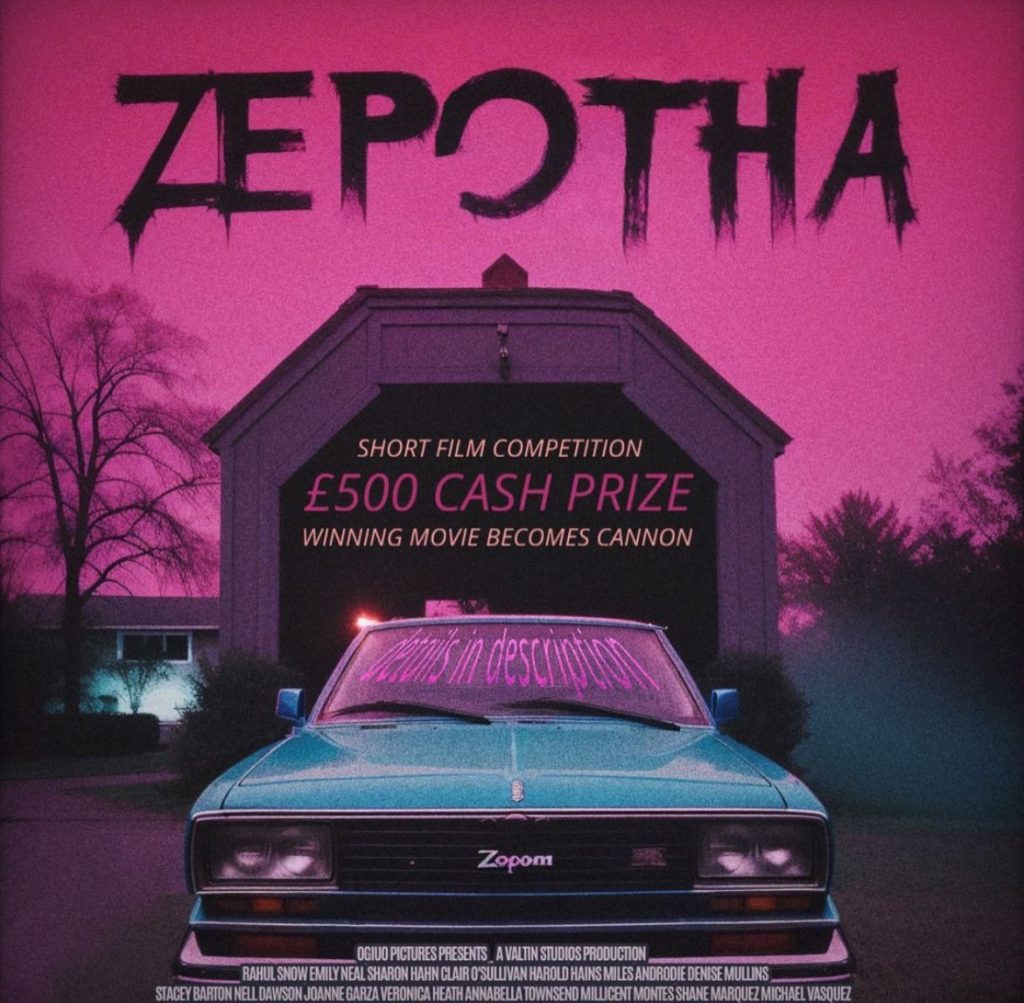Have any of you seen that cult 80s horror movie called Zepotha? It used to be on some streaming platforms, but then randomly got taken down from everywhere and now you can just find limited edition DVDs. You start to remember something, right? There was this character Maxine that caused all the drama and that plot twist. The gas station scene in particular actually still gives me the chills. Even Netflix accepts that “Zepotha walked so that stranger things could run.” Ring any bell? Perhaps now you start to remember the movie or some certain scenes, right?

Well, most probably not, because Zepotha actually does not exist. Yes, you have read it all correctly. Everything started when a TikTok user and artist Emily Jeffri shared her idea of creating a fake movie, commenting things like “oh you look like __ from Zepotha” under other people’s videos and thereby confusing the internet about a movie that never existed in the first place. In a very short time after that video was published, Zepotha became viral and even the official account of Netflix and the band “Tears For Fears” joined the trend. Everyone started contributing something to it and creating content such as making POV videos, “which character from Zepotha are you?” filters and showing objects that were “used” in the set of the movie. Soon all the comments of the most random people that had nothing to do with the idea started to be filled with comments that indicated that they looked like this or that character from Zepotha. People were usually divided into two in these comments: the ones who continued the “joke” by shaming people for not knowing that masterpiece movie and the others who had no clue about what Zepotha was and how they would be able to watch it.
The interesting thing is that this was not the first time that the Internet was fooled by a non-existent film. Apparently, this idea first emerged approximately five years ago on Tumblr with a “movie” called Goncharov that was promoted with the tagline “greatest mafia movie ever made.” People who were there when Goncharov happened often seem to criticize Zepotha because it is rather messy and uncoordinated. Goncharov has a clear plot, certain actors assigned for each character, a poster accepted by everyone and it is promoted as a movie made by Martin Scorsese. It is shared as a movie that had some production issues, hence explaining the unclarity of the whole topic to gaslight people better.
The plot twist for the whole idea of Zepotha is that it is actually made as a marketing strategy, whereas Goncharov just started as a meme and was indeed for “fun.” All the videos are shared under the same song named “Do You Remember Me” from the album “Soundtrack for an 80’s Horror Movie” that is made by Emily Jeffri who is the girl that started the whole thing. Just by sharing this idea of hers she got more than 10k people to use that song and promoted a whole album. Now she is having a Zepotha short movie contest and continuing the strategy. Just imagine, she posted one video and her views that were at a few thousand sky rocketed to millions. Big brands and celebrities shared something about Zepotha, therefore promoted her music. People got curious from one song and learned that she and her albums exist. And the thing is that everyone who contributed to the idea willingly, without any force, prize or money promoted her. Not that anyone wanted to promote her, but one way or another by sharing content under her music they made people know about her.
That makes me wonder, what are the limits of the Internet? If a girl was able to promote her music by fooling the internet about an imaginary movie and now I was able to make you read something about two non-existent movies, what really is the limit?


I was surprised that what I read so carefully was instead a trick ultimately! I would say I was genuinely played twice by the female artist first and by you secondly. It seems like I was played twice – first by the female artist and then by you. The accessibility of the internet is transparent to the public, yet the boundary of the internet remains elusive. We can’t tell if it’s true when a popular event comes out in front of us until we see the explanation of authoritative organizations. However, what makes me feel the most tricky is that we are always playing each other around. For example, can you really tell a celebrity like Kendall Jenner who is self-disciplined and doesn’t have any personas? Or, are all of these attractive things on the internet about to make profits? In my view, while we have the freedom to access the online environment, the truth behind it remains elusive. Internet’s ambiguity remains there and it invites others to see how individuals play with the potential rules of the internet.
The clickbaits are so infuriating, yet there is not much can be done about it. It plays towards our curiosity. If what was expected/promised happens, great you get views and comments. If it was all a gimmick, you still get views and comments probably more than the previous case. The hatebaiting is such a popular thing nowdays and I don’t think people will stop taking advantage of it.